Reading skills development Phonics Worksheets for Ages 6-9
5 filtered results
-
From - To
Unlock your child's potential with our "Reading Skills Development Phonics Worksheets" tailored for ages 6-9. Our engaging, expertly crafted activities help young learners master phonics, boosting their confidence and competence in reading. From alphabet recognition to sound blends and word formation, each worksheet is designed to make learning fun and effective. Perfect for both classroom and home use, these resources provide a solid foundation in essential reading skills. Foster a love for reading and watch your child thrive academically with our trusted, high-quality phonics worksheets, created by experienced educators.
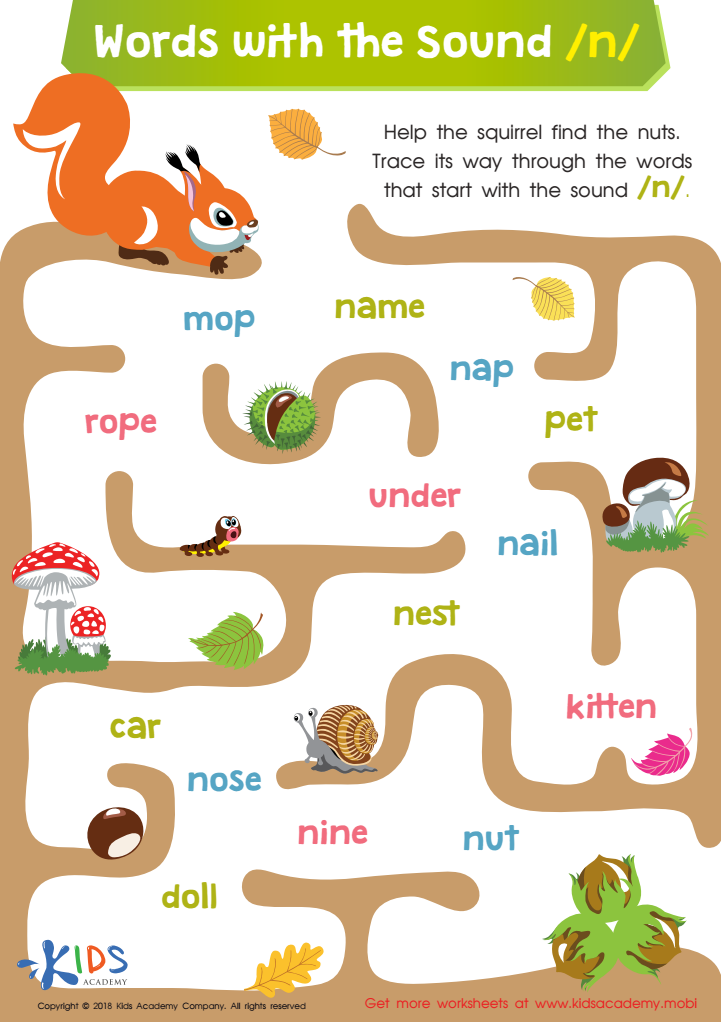

Words with Sound N Reading Worksheet
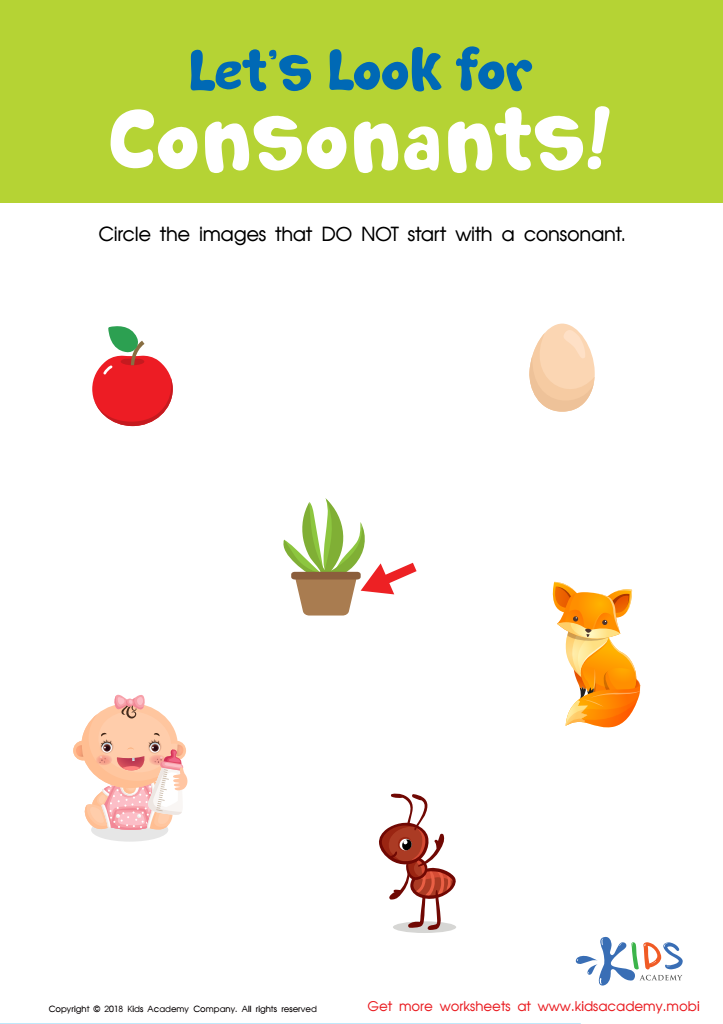

Let's Look for Consonants Worksheet
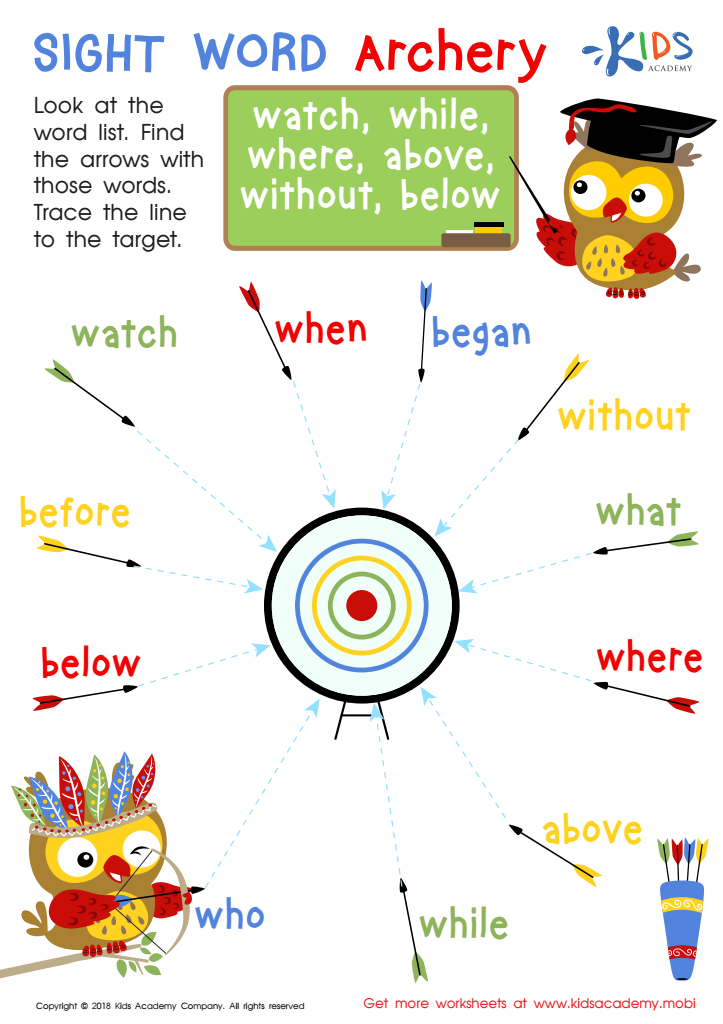

Sight Word Archery Worksheet
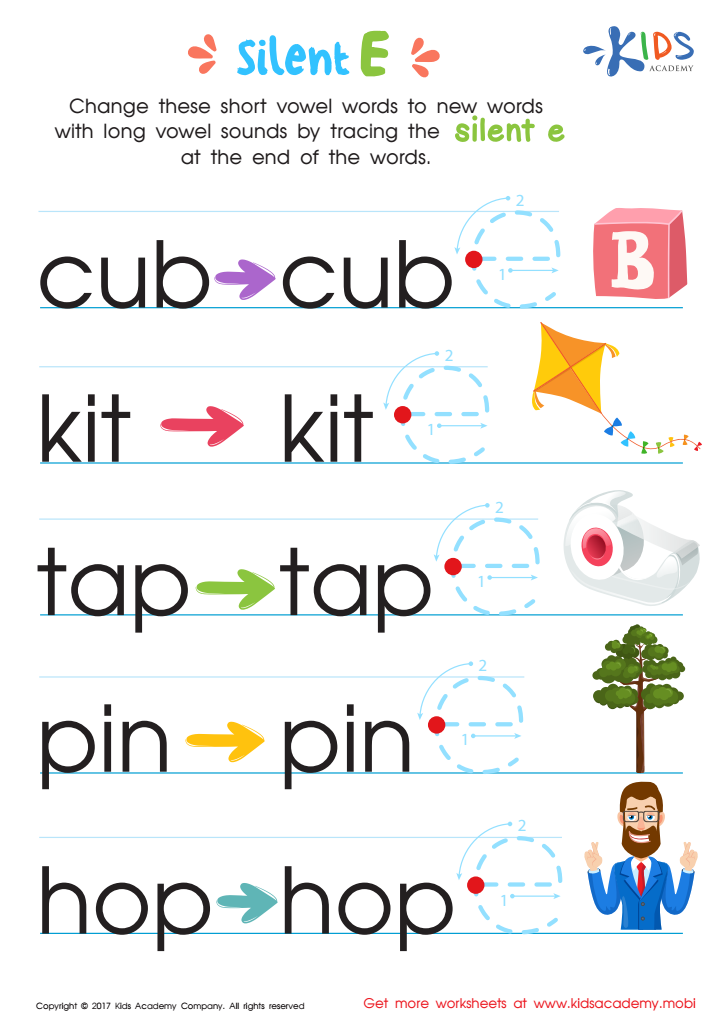

Silent E Words Worksheet
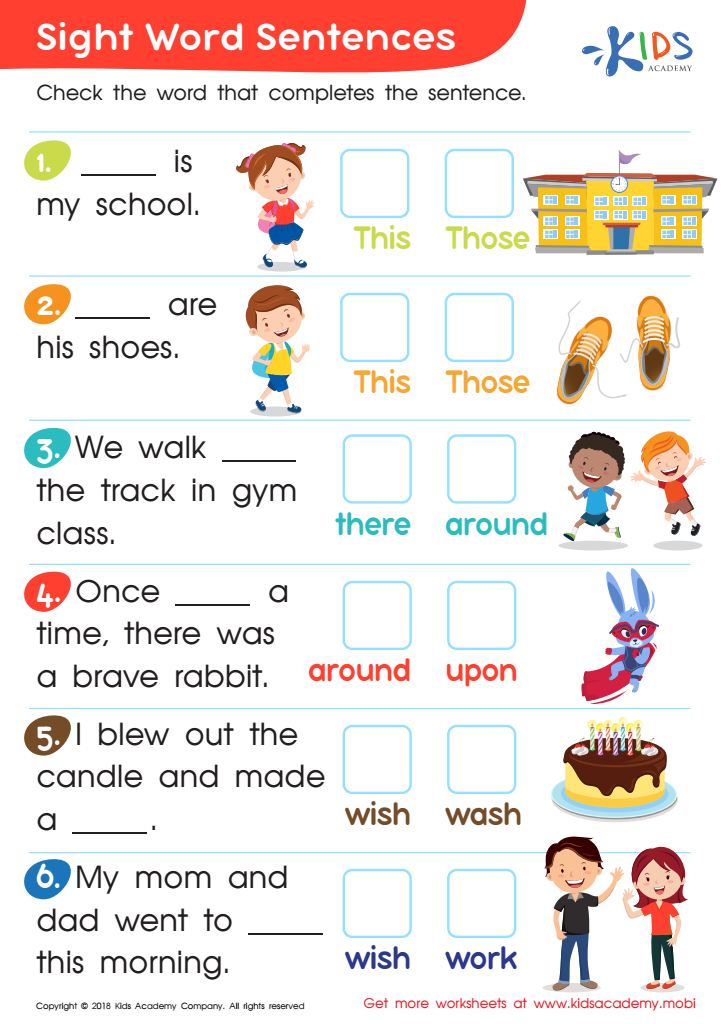

Sight Word Sentences Worksheet
Parents and teachers have a vital role in fostering reading skills through phonics in children aged 6-9. Phonics is the method of teaching reading by associating sounds with letters or groups of letters. This age group is particularly significant because it is a critical period for cognitive and language development. Developing phonics skills provides the foundation for word recognition, fluent reading, and overall language proficiency.
When children learn phonics, they become more adept at decoding words, which builds their confidence and promotes a love for reading. This skill is fundamental to their academic success because reading is the cornerstone of learning in all subjects. Without strong reading skills, children are likely to struggle with understanding complex concepts in later grades. Furthermore, proficient reading abilities in the early years correlate with better performance in future education and even career success.
For parents, supporting phonics can enhance bonding through shared reading experiences and boost their child's self-esteem as they progress. For teachers, an emphasis on phonics ensures that all students, regardless of diverse learning needs, have the critical tools necessary to develop literacy. Therefore, prioritizing phonics from ages 6-9 sets children on a path to academic achievement and lifelong learning.
 Assign to My Students
Assign to My Students



















